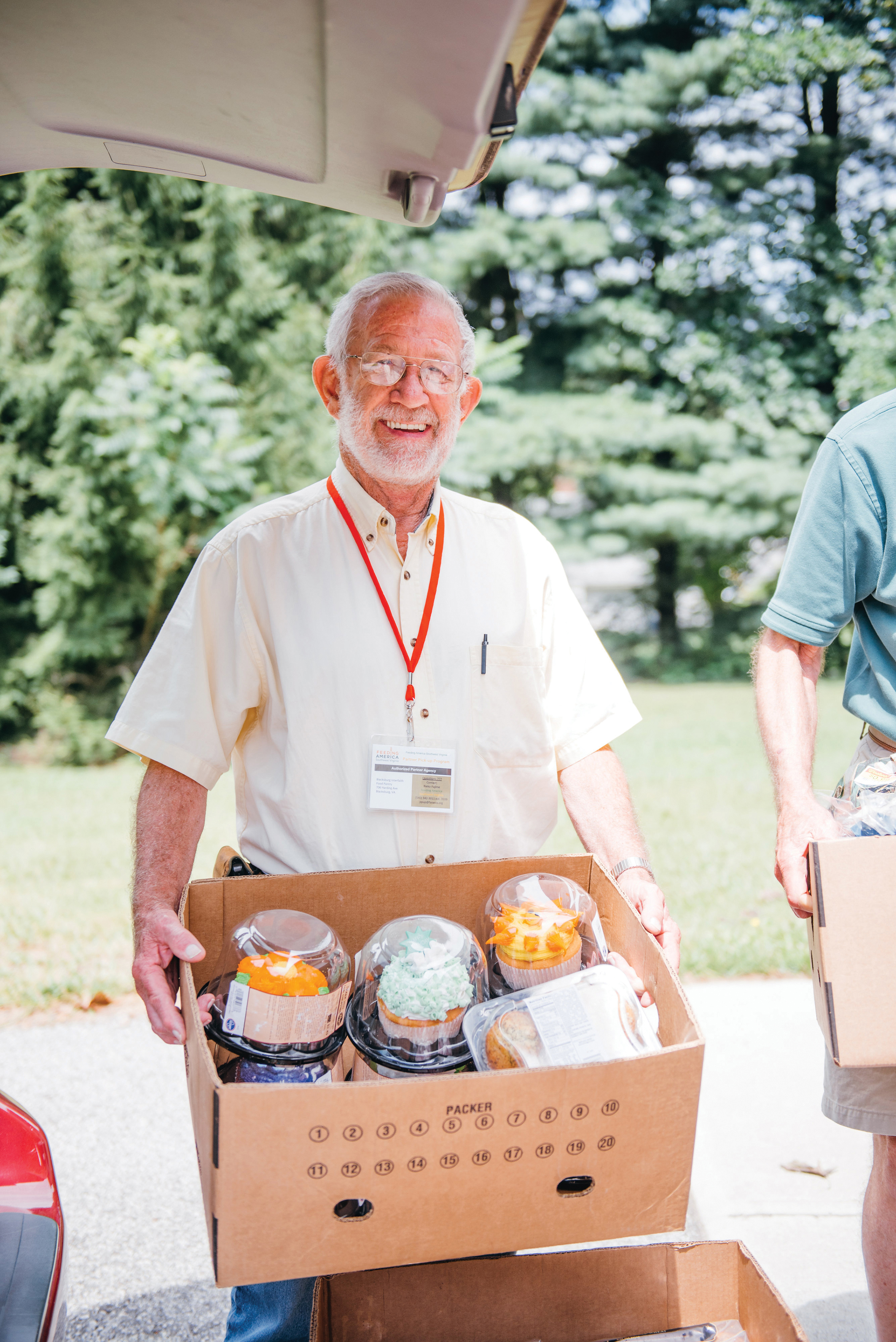Pearl is the item associated with a 30th anniversary, and that is exactly what the Interfaith Food Pantry is to Blacksburg with its three decades of quiet service. “For 30 years the Pantry has been fortunate to provide food to the community without interruption,” says director Vern Simpson.
In 1987, four local residents from different churches met to discuss the hunger problem in Blacksburg. They ultimately formed the Interfaith Food Pantry. It found a home in a brick house on Progress Street, owned (still) by Blacksburg Baptist Church and was open once a week. Ten years later, it opened five days a week as the client list grew and grew. Thanks largely to a donation by T. Marshall Hahn, the Pantry moved five years ago into new and larger quarters on property owned by Blacksburg United Methodist Church, at last able to occupy a building designed for its purpose. More than 25 congregations support the Pantry.
The Interfaith Food Pantry offers basic food supplies once a month to low income Blacksburg and McCoy residents, or to those in emergency situations, including homeless individuals and families. The groceries and staples each month are valued between $150 and $400 depending on family size and food availability.
As of June, 2017, the Pantry serves about 600 persons each month. Family size ranges from one to eight. Potential recipients are screened for eligibility by the Montgomery County Emergency Assistance Program (MCEAP.) While some of the recipients do work, minimum wage jobs do not always enable them to feed their families. Each partner church provides an opportunity for members to bring food for the Pantry to the church and then onward to the Pantry.
Individual residents bring donations of food as well. “Food drives” sponsored by various civic and school groups bring in sizeable donations, and a major “food drive” is sponsored each May by the National Association of Letter Carriers. The North Main Food Lion and the University Mall Kroger stores, along with Bimbo Bakeries and Little Caesar Pizza, make available numerous items of foodstuffs each week. About a dozen retail restaurants and food shops offer items periodically. In addition, churches provide items such as milk, eggs, cereal, peanut butter, rice, detergent, dried beans, potatoes and meat. In the summer, family gardens and family farms bring in bushels of fresh vegetables.
Many things not provided directly are purchased at a discount at Feed America, Food Lion and Kroger with funds gifted by churches and generous individuals. Numerous persons load Kroger gift cards which are usually designated for meat purchases. In the fall, the Hunters for the Hungry program provides a large supply of processed cuts of deer meat for the pantry. The NRV Glean Team helps with produce on a year-round basis from various venues including Red Sun Farms in Dublin.
The Pantry passes on some food to the Salvation Army, MCEAP, Virginia Tech’s student food pantry, Fieldstone pantry and an emerging food pantry in Giles County. All of the work, unloading, filling shelves, picking up donated foods and assisting food pantry patrons is done by some 200 volunteers. The director and Advisory Board members are also unpaid. The success in staffing, according to Simpson, is due to the informal coalition of many local churches. There is a “church volunteer coordinator” in each member church who helps keep a supply of volunteers available.
In addition to having physical space and volunteers, a main challenge of food pantries is adequate food supplies, says Simpson. Even as the Pantry’s recipient rolls grew rapidly from 2007 to 2009 during the recessed economy food donations continued unabated. “Blacksburg is a community that cares and provides,” relates Simpson.
Text by Jennifer Poff Cooper | Photos by Kristie Lea Photography
Jennifer Poff Cooper is a Christiansburg freelance writer and frequent contributor to New River Valley Magazine.

